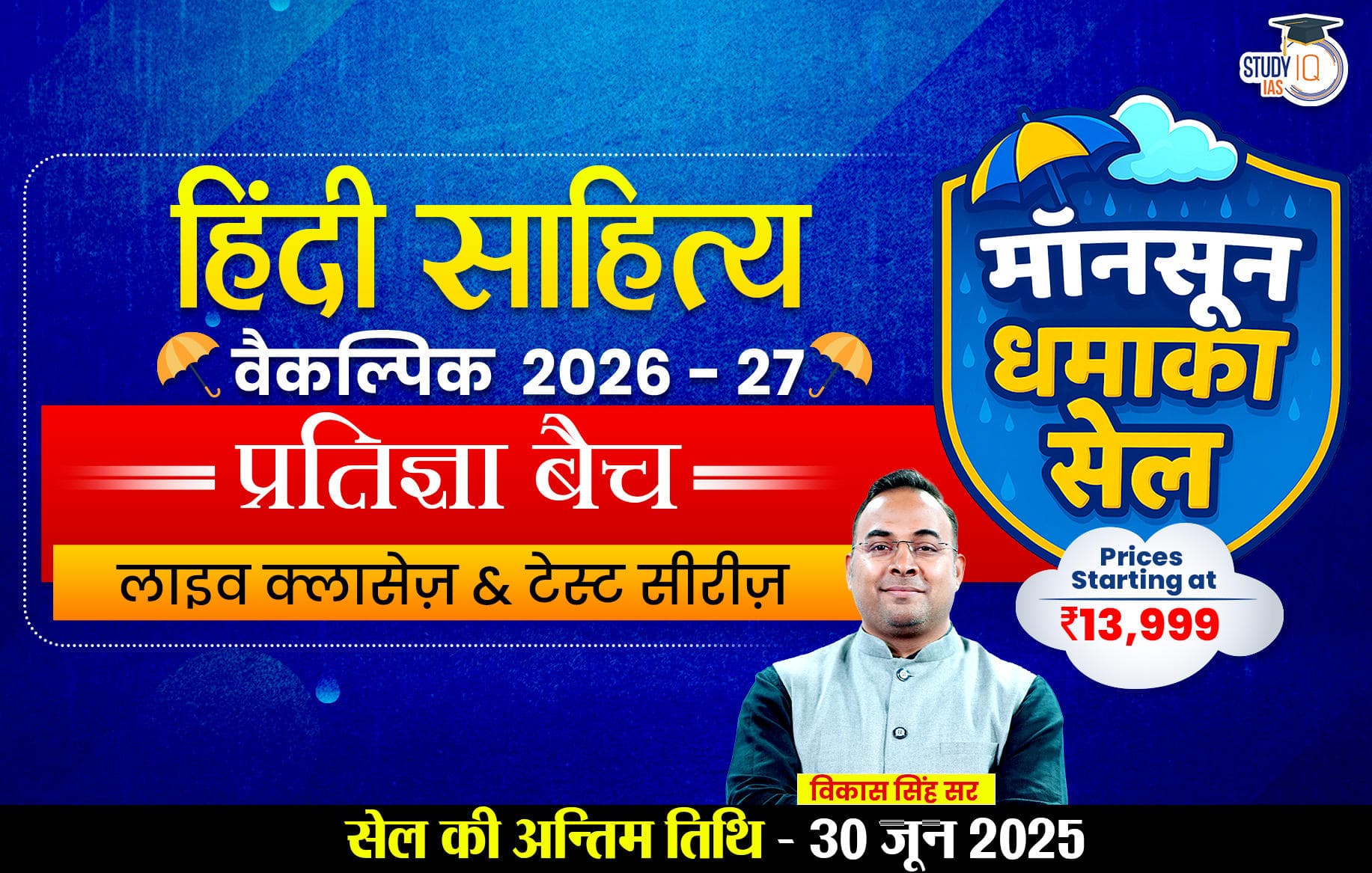Table of Contents
Om Birla Re-elected as Speaker of the 18th Lok Sabha
Om Birla, the BJP nominee, has been re-elected as the Speaker of the 18th Lok Sabha. He was up against Congress candidate K Suresh, who filed his nomination after the ruling party and the Opposition failed to reach a consensus the previous evening.
Following his victory, Om Birla was congratulated by both Prime Minister Narendra Modi and Congress leader Rahul Gandhi. They escorted him to the Speaker’s chair. PM Modi highlighted that Birla’s experience as Speaker in the previous term would be beneficial for guiding the country further.
The Speaker of the Lok Sabha serves as the presiding officer and the highest authority of the Lok Sabha, the lower house of India’s Parliament. The Speaker is generally elected during the first meeting of the Lok Sabha following general elections and serves a term of five years. The Speaker of Lok Sabha is an important part of Indian Polity which an important subject in UPSC Syllabus.
Om Birla vs K Suresh
Om Birla of the BJP has been re-elected as the Speaker of the 18th Lok Sabha, defeating Congress candidate K Suresh. The NDA and the Opposition failed to reach a consensus, leading to the election. PM Modi and Rahul Gandhi congratulated Birla on his victory. Last-minute discussions between Defence Minister Rajnath Singh and Congress President Mallikarjun Kharge regarding the Deputy Speaker role did not yield an agreement before the nomination deadline.
Is this the first Lok Sabha Speaker election since Independence?
No, this is not the first Lok Sabha Speaker election since Independence. The Lok Sabha, India’s lower house of Parliament, has held numerous Speaker elections since its first session in 1952. The election of Om Birla as Speaker for the 18th Lok Sabha is part of a long-standing parliamentary tradition.
Why did the NDA and Opposition fail to reach a consensus?
On Monday night, Defence Minister Rajnath Singh engaged with Congress President and Leader of the Opposition in the Rajya Sabha, Mallikarjun Kharge, along with other opposition leaders, to seek consensus on Om Birla’s nomination. Congress sources reported that Kharge raised the issue of the Deputy Speaker during their discussion and was informed it could be addressed on Tuesday morning.
However, just before the noon deadline for Speaker nominations on Tuesday, the ruling party requested signatures on Birla’s nomination papers without committing to the Deputy Speaker issue.
About Speaker of Lok Sabha
The highest power in the Parliament’s lower house is held by the Speaker of the Lok Sabha. The lower house of the Indian Parliament is known as Lok Sabha or the House of the People. In Article 93 of the Indian Constitution, the speaker of the Lok Sabha is referred to as the presiding officer of the Lok Sabha. Om Birla is the Lok Sabha’s current speaker. Since 2021, he has served as the lower house’s 17th speaker.
| About Speaker of Lok Sabha | |
|---|---|
| Role | Presiding officer of the Lok Sabha (House of the People), the lower house of India’s Parliament |
| Duties | Maintains order during debates, decides on points of order, represents the House externally |
| Appointment | Elected by the members of the Lok Sabha from among themselves |
| Term | Holds office during the tenure of the Lok Sabha, unless they resign or are removed |
| Authority | Exercises administrative and disciplinary powers within the House |
| Salary and Benefits | Entitled to a salary, allowances, and other perks as determined by the government |
| Political Neutrality | Expected to renounce all party affiliations upon taking office |
Speaker of Lok Sabha History
The Speaker of Lok Sabha Lok Sabha history dates back to 1919. The phrases “Lok Sabha Speaker” and “Deputy Speaker” were introduced much later. Here is a brief overview of its past. The Indian constitution, parliamentary conventions, and the Rules of Procedure and Conduct of Business of the Lok Sabha grant the Speaker of the Lok Sabha a number of powers.
The Montagu-Chelmsford Reforms, which followed the Government of India Act 1919, introduced the Speaker and Deputy Speaker institutions. Up until 1947, the Speaker and Deputy Speaker were addressed by the President. The Central Legislative Assembly’s first speaker and deputy speaker were chosen to serve as Frederick Whyte and Sachidanand Sinha. In 1925, Vithalbhai J. Patel is credited as being the Central Legislative Assembly’s first Speaker.
After Independence, Ganesh Vasudev Mavalankar served as Speaker from 15 May 1952 until 27 February 1956. In the Indian Parliament, Madabhushi Ananthasayanam Ayyangar held the positions of first Deputy Speaker and first Speaker of the Lok Sabha. All sessions in the Lower House of the Parliament are presided over by a Speaker of the Lok Sabha.
List of Speakers of Lok Sabha after Independence
Below is the complete List of Lok Sabha speakers after independence till date. You can see the List to know all about the Speaker of Lok Sabha:
| S.No. | Speaker (Birth-Death) |
Term of office | ||
| From | To | Period | ||
| 1 | G. V. Mavalankar (1888–1956) |
15 May 1952 |
27 February 1956 |
3 years, 288 days |
| 2 | M. A. Ayyangar (1891–1978) |
8 March 1956 |
4 April 1957 |
6 years, 22 days |
| 5 April 1957 |
31 March 1962 |
|||
| 3 | Hukam Singh (1895–1983) |
17 April 1962 |
16 March 1967 |
4 years, 333 days |
| 4 | Neelam Sanjiva Reddy (1913–1996) |
17 March 1967 |
19 July 1969 |
2 years, 124 days |
| 5 | Gurdial Singh Dhillon (1915–1992) |
8 August 1969 |
17 March 1971 |
6 years, 110 days |
| 22 March 1971 |
1 December 1975 |
|||
| 6 | Bali Ram Bhagat (1922–2011) |
15 January 1976 |
25 March 1977 |
1 year, 69 days |
| (4) | Neelam Sanjiva Reddy (1913–1996) |
26 March 1977 |
13 July 1977 |
109 days |
| 7 | K. S. Hegde (1909–1990) |
21 July 1977 |
21 January 1980 |
2 years, 184 days |
| 8 | Balram Jakhar (1923–2016) |
22 January 1980 |
15 January 1985 |
9 years, 329 days |
| 16 January 1985 |
18 December 1989 |
|||
| 9 | Rabi Ray (1926–2017) |
19 December 1989 |
9 July 1991 |
1 year, 202 days |
| 10 | Shivraj Patil (born 1935) |
10 July 1991 |
22 May 1996 |
4 years, 317 days |
| 11 | P. A. Sangma (1947–2016) |
23 May 1996 |
23 March 1998 |
1 year, 304 days |
| 12 | G. M. C. Balayogi (1951–2002) |
24 March 1998 |
19 October 1999 |
3 years, 342 days |
| 22 October 1999 |
3 March 2002 |
|||
| 13 | Manohar Joshi (1937–2024) |
10 May 2002 |
2 June 2004 |
2 years, 23 days |
| 14 | Somnath Chatterjee (1929–2018) |
4 June 2004 |
4 June 2009 |
5 years, 0 days |
| 15 | Meira Kumar (born 1945) |
4 June 2009 |
5 June 2014 |
5 years, 1 day |
| 16 | Sumitra Mahajan (born 1943) |
6 June 2014 |
10 June 2019 |
5 years, 4 days |
| 17 | Om Birla (born 1962) |
19 June 2019 |
5 June 2024 |
4 years, 357 days |
| 18 | Om Birla | 25 June 2024 |
Continued | |
Speaker of Lok Sabha and Article 93
The House of the People shall as soon as practicable elect two members to serve as its Speaker and Deputy Speaker, respectively, in accordance with Article 93, which governs the speaker and deputy speaker of the Lok Sabha. The House shall, when necessary, elect a new member to fill each vacancy occurring in one of those places.
Constitutional Provisions for Speaker of Lok Sabha
| Constitutional Provision | Details |
| Article 94 | It addresses the Speaker’s and Deputy Speaker’s provisions for resignation, leave of absence, and removal. |
| Article 95 | The power of the Deputy Speaker or any other person to perform the duties of the Speaker or to act in that capacity. |
| Article 96 | When a resolution to remove the Speaker from office is being discussed, the Speaker or the Deputy Speaker may preside. |
Election and Tenure of Speaker of Lok Sabha
The Speaker and Deputy Speaker are both elected under Article 93 of the Indian Constitution. The Lok Sabha elects the Speaker from among its members, and when the position becomes vacant, the Lok Sabha elects a new member to fill it. The President sets the date for the Speaker election.
There are no requirements that must be met in order to become a Speaker. The Constitution simply specifies that the Speaker must be a member of the House. But understanding the nation’s Constitution and laws, as well as the customs and traditions of Parliament, is thought to be a big benefit for the Speaker.
The Speaker is in office from the day of their election till the first Lok Sabha session that takes place after the one they were elected to. When the Lok Sabha is dissolved, the Speaker is no longer considered a member of the House.
Role of the Speaker of Lok Sabha
The Speaker serves as the Lok Sabha’s head, its representative, and the protector of the member’s rights and privileges as well as those of the entire body and its committees. As the main representative of the House, he or she has the final say on all matters pertaining to the Parliament.
The Constitution of India, the Rules of Procedure and Conduct of Business of the Lok Sabha, and Parliamentary Conventions (residual powers not expressly stated in the Rules) are the three sources from which the Speaker of the Lok Sabha gets his or her authority.
Power and Duties of Speaker of Lok Sabha
The Speaker of Lok Sabha holds significant powers and duties within the Indian parliamentary system. Here’s an elaboration:
Powers
- Presiding Over Sessions: The Speaker presides over the meetings and sessions of the Lok Sabha, maintaining decorum and ensuring orderly conduct.
- Decision on Procedures: They decide on matters of parliamentary procedures, including the admissibility of questions, debates, and discussions.
- Casting Vote: In the case of a tie during voting, the Speaker has the casting vote, which can influence the outcome of a decision.
- Committee Appointments: They have the authority to appoint members to various parliamentary committees.
- Order and Discipline: The Speaker maintains order and discipline within the House, taking action against members who violate rules or disrupt proceedings.
- Certification of Money Bills: The Speaker certifies whether a bill is a money bill or not. Money bills can only be introduced in the Lok Sabha and not in the Rajya Sabha, and the Speaker’s certification is final.
- Summoning and Prorogation: The Speaker, in consultation with the President, summons and prorogues the sessions of Lok Sabha.
Duties
- Representing the House: The Speaker represents the Lok Sabha in its relations with the President, Rajya Sabha, and other authorities.
- Addressing Public: They address public gatherings on behalf of the Lok Sabha and convey its views on various issues.
- Superintendence of Staff: The Speaker exercises superintendence over the staff of the Lok Sabha Secretariat.
- Parliamentary Committees: The Speaker appoints the Chairpersons and members of various parliamentary committees and ensures their smooth functioning.
- Conduct of Business: It is the Speaker’s duty to ensure that the business of the House is conducted efficiently and fairly.
- Protection of Members’ Rights: The Speaker safeguards the rights and privileges of the members of Lok Sabha.
- Ensuring Parliamentary Norms: They ensure that parliamentary norms, traditions, and conventions are upheld during the proceedings.
- Addressing Public Concerns: The Speaker addresses public concerns and disseminates information about the functioning of the Lok Sabha.
Removal Process of Speaker of Lok Sabha
The Lower House members participate in and cast votes in a transparent process that names the Lok Sabha Speaker for a term of five years. A formal procedure can be followed to remove the Speaker of Lok Sabha from office if necessary due to unanticipated events. A Lok Sabha Speaker can be removed from office primarily in three ways.
Speaker removal will occur if a resolution is approved by the Lok Sabha’s members with an absolute majority in accordance with Articles 94 and 95 of the Constitution. A Lok Sabha Speaker may participate in the House’s deliberations over his or her removal and may cast a vote, but only in the first round. Only if there are an unequal number of votes for and against removal will the vote be permitted. He/she shall be removed from office if prohibited from holding office under Sections 7 and 8 of the Representation of the People Act of 1951.
Also Read: Parliamentary Privileges
Who is Pro Tem Speaker of Lok Sabha?
When the Speaker of the outgoing Lok Sabha resigns right before the start of the newly elected Lok Sabha’s first session, the President names a member of the Lok Sabha as Speaker Pro Tem.
A vacancy in the position of Speaker of the House. Usually, the most experienced member is selected for this role. The President administers the oath and possesses all of the Speaker’s power. He or she administers the oath to the newly elected House members. However, once the new Lok Sabha Speaker is selected, that person’s term expires. Know all about the Pro-tem Speaker here.
Deputy Speaker of Lok Sabha
After electing the Speaker, the Lok Sabha chooses the Deputy Speaker from among its members. Since the 11th Lok Sabha, the Speaker has set the date for the election of the Deputy Speaker. Before this, the dominant party elected both the Speaker and the Deputy Speaker. His/her compensation is charged to the Consolidated Fund of India and is determined by Parliament.
Power of Deputy Speaker of Lok Sabha
A deputy speaker has the unique privilege of being able to lead a parliamentary or judicial committee as soon as they are appointed as a member of it. When the Speaker is not present, the Deputy Speaker preside over the combined session of the Rajya Sabha and the Lok Sabha.

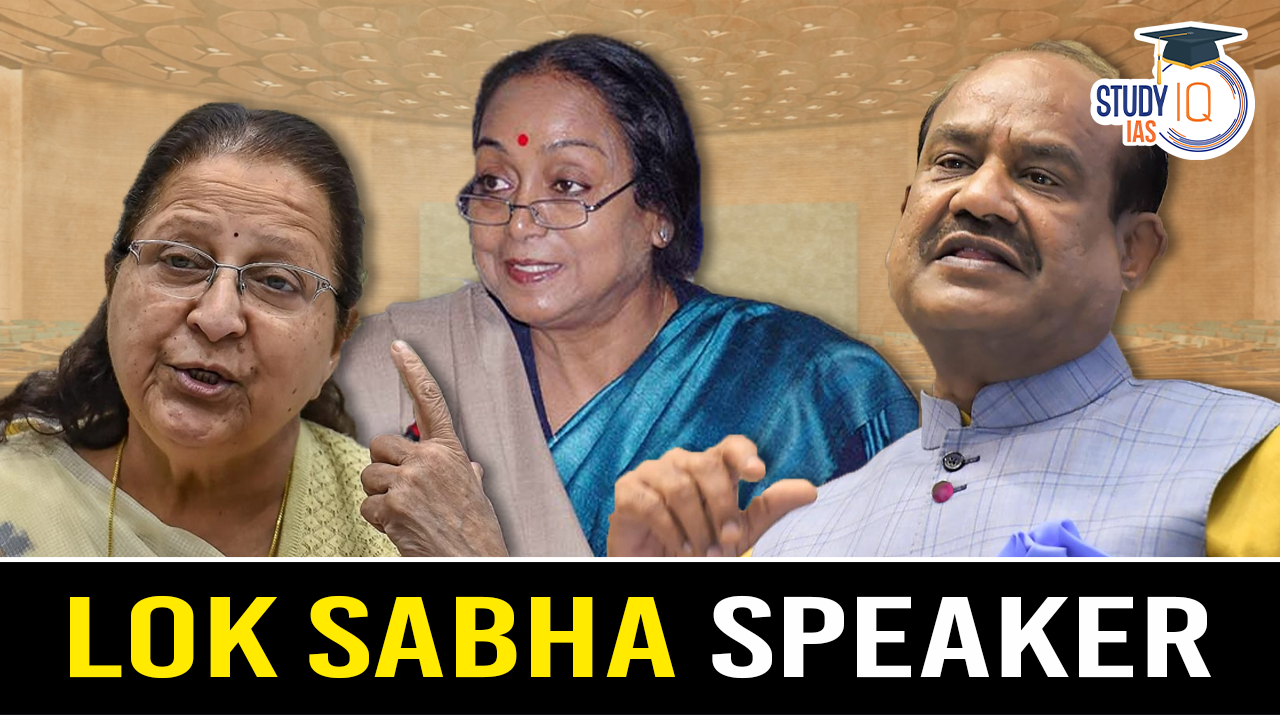
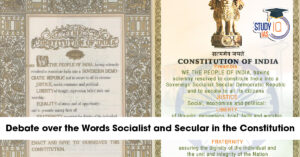 Indian Secularism: Constitutional Provis...
Indian Secularism: Constitutional Provis...
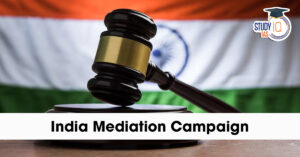 India Mediation Campaign, Objectives, Pr...
India Mediation Campaign, Objectives, Pr...
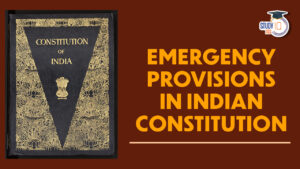 Emergency Provisions in Indian Constitut...
Emergency Provisions in Indian Constitut...











